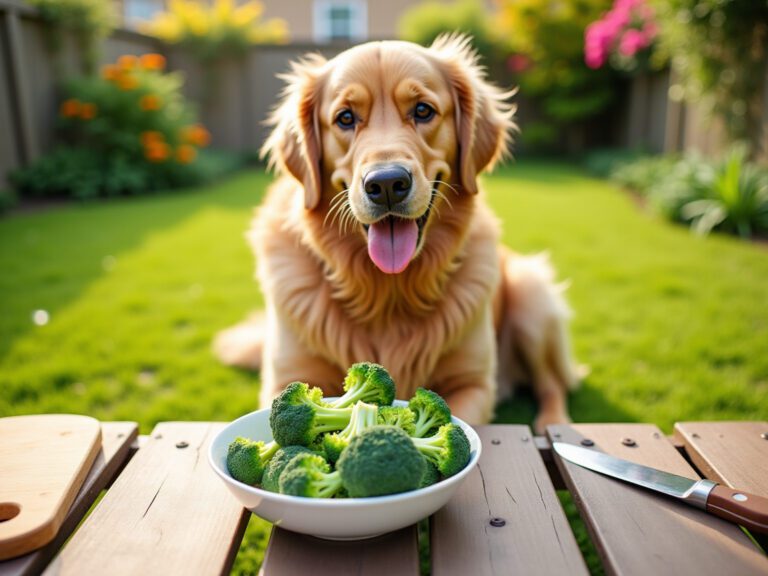Can Dogs Eat Cheese? Understanding Benefits and Risks
Overview
As a loving pet owner, you may wonder about the safety of cheese for your furry family members. Dogs can indeed enjoy cheese in moderation, offering them nutritional benefits like protein and calcium. However, it’s important to be mindful of the risks, such as obesity and digestive issues, that can arise if cheese is consumed excessively.
At Adventure Den, we understand your concerns about providing safe treats for your pets. Choosing the right cheese varieties and monitoring portion sizes are essential steps to ensure that cheese remains a healthy indulgence. Additionally, being aware of your dog’s individual lactose tolerance can help you make informed decisions.
By taking these precautions, you can create a nurturing environment where your dog can enjoy cheese as a delightful treat, without compromising their health. Remember, your furry family members deserve the best care possible, and we’re here to support you every step of the way.
Introduction
The delightful bond between dogs and cheese is one that many pet owners treasure, yet it comes with important considerations. Cheese can serve as a tasty treat that motivates your furry family members during training or enhances their meals. However, understanding its nutritional benefits and potential risks is essential for maintaining a healthy diet. With a variety of cheese types available, it’s crucial to recognize that not all are suitable for canine consumption, and some can even pose health hazards.
This article will explore the role of cheese in your dog’s diet, examining both safe and unsafe varieties, the implications of lactose intolerance, and guidelines for portion control. By navigating these factors, you can ensure that cheese remains a safe indulgence for your beloved companions. Together, let’s create a nurturing environment where your pets can enjoy their treats with care.
Understanding Dogs and Cheese: A Definition
Cheese is a delightful dairy treat that many dogs enjoy, raising the question of can dogs eat cheese, which brings joy to both pets and their guardians. While dairy products aren’t toxic to our furry family members, their nutritional value can vary greatly depending on the type. Understanding how dairy fits into your dog’s diet, particularly regarding can dogs eat cheese, is essential; it can serve as a high-value reward during training or an occasional indulgence, as long as it’s given in moderation. The rich taste and tempting aroma of dairy make it a favorite choice for pet owners looking to encourage positive behavior during training sessions or to mask the flavor of medication.
Research shows that many dogs respond positively to the taste of dairy, making it an effective training reward. In fact, numerous dog owners incorporate dairy products into their training routines to motivate their pets, enhancing the overall experience. However, it’s important to consider the specific dairy product being offered, including whether can dogs eat cheese, as some may contain higher levels of fat or sodium, which could pose health risks if consumed in excess.
Veterinary specialists often recommend introducing dairy in small amounts and discuss if can dogs eat cheese, emphasizing its potential benefits when used appropriately. For instance, Dr. Amy Pike, a veterinary behaviorist, suggests, “Adding extra flavor to dog food: Sprinkle small pieces of shredded dairy on top of your dog’s food to enhance taste and encourage them to eat.” This highlights how dairy can make dog food more appealing, especially for picky eaters. Overall, while dairy products can be a safe and enjoyable treat for your beloved pets, it’s crucial for pet owners to observe their dogs’ reactions and adjust portions accordingly to ensure a balanced diet.
Nutritional Benefits and Risks of Cheese for Dogs
Many pet owners ask, can dogs eat cheese, as it can be a nutritious addition to your furry family members’ diets, offering essential nutrients such as protein, calcium, and vitamins A and B12. These components are vital for supporting bone health, muscle development, and overall vitality. For instance, a standard portion of dairy can provide a considerable protein boost, which is especially beneficial for active canines. However, it’s important to be mindful that dairy products can also be high in fat and calories, potentially leading to weight gain and obesity if consumed in large quantities. Studies suggest that excessive dairy consumption may result in obesity-related health issues in dogs, such as pancreatitis.
Moreover, some dogs may struggle to digest dairy products, particularly those that are lactose intolerant. This can lead to gastrointestinal upset, including diarrhea or vomiting. To safely include dairy in your dog’s diet, you might wonder if can dogs eat cheese, and consider choosing low-fat varieties while closely monitoring portion sizes. The case study titled ‘Feeding Dairy Safely to Your Dog’ highlights the importance of being cautious with dairy intake due to its high-fat content and the associated risks of obesity. Consulting with a veterinarian is always a wise step to ensure that this dairy product is a suitable treat for your dog, especially if they have pre-existing health conditions or if it contains potentially harmful ingredients. By being mindful of these factors, you can enjoy the advantages of this delicious treat as a tasty reward while minimizing potential health risks for your beloved pet.
Safe and Unsafe Cheese Varieties for Dogs
When it comes to your furry family members and their dairy consumption, it’s important to know that not all types are created equal. When considering safe choices for canines, one might ask if can dogs eat cheese, including options like mozzarella, cottage cheese, and cheddar. These options are generally easier for dogs to digest and contain fewer harmful additives. In fact, natural dairy products are often recommended for their nutritional benefits, including calcium and B-complex vitamins, which can be particularly advantageous when used as high-value treats during training sessions. It’s heartening to know that statistics suggest these natural dairy products are optimal for our pets, emphasizing their appropriateness as rewards.
Conversely, certain dairy products can pose significant health risks to our beloved companions. For instance, blue cheese contains roquefortine C, a compound that can be toxic to dogs, making it a variety to avoid. Additionally, dairy products that are high in sodium or contain harmful ingredients like garlic or onion should be strictly off-limits. As caring pet caregivers, it’s essential to examine labels closely to ensure we select plain, unseasoned dairy products. As Lynn Guthrie, a passionate writer and pet caregiver, wisely advises, “Always avoid varieties with additives like herbs, sugar, and spices.”
Studies show that a significant portion of dog guardians may be unaware of the hazardous varieties of dairy products, highlighting the need for increased awareness regarding pet nutrition. Experts encourage pet caregivers to focus on natural dairy options while steering clear of those with additives. Furthermore, it’s important to understand that using dairy products to administer antibiotics can render the medication ineffective, as the antibiotic may bind to calcium in these foods, preventing proper absorption. By understanding which types of dairy are safe and which to avoid, you can make informed choices that contribute to your pets’ health and well-being.
A case study titled ‘Benefits and Risks of Feeding Cheese to Dogs’ discusses whether can dogs eat cheese, emphasizing that while cheese can be a high-value treat, excessive consumption can lead to weight gain and digestive issues, highlighting the importance of moderation. Remember, nurturing your pet’s health is a journey, and being informed is a vital step towards ensuring a happy and healthy life for your furry friends.
Lactose Intolerance in Dogs: What You Should Know
Lactose intolerance can be a concern for your furry family members, arising when they lack sufficient lactase, the enzyme needed to digest lactose—the sugar found in milk and dairy products. This condition can develop at any age, but it is particularly common in older canines. You may notice symptoms such as bloating, gas, diarrhea, and abdominal discomfort after they consume dairy.
Research shows that the most common age for food allergies, including lactose intolerance, to manifest is under one year old. This highlights the importance of closely monitoring young canines for any dietary sensitivities, particularly in relation to the question of can dogs eat cheese, as it’s essential for a caring pet owner to keep an eye on their pets for any adverse reactions when introducing dairy into their diet. If symptoms arise, consulting a veterinarian is a wise step.
In cases of confirmed lactose intolerance, it’s important to consider if can dogs eat cheese, and avoiding cheese altogether or choosing low-lactose alternatives, like cottage cheese, can be beneficial. Veterinary advice emphasizes recognizing the signs of lactose intolerance, which may include gastrointestinal distress and skin irritations. For canines displaying chronic symptoms that don’t respond to standard treatments, a food trial may be necessary. In these instances, veterinary-recommended novel protein and hydrolyzed diets are often preferred over commercial foods, as they minimize the risk of cross-contamination with unwanted proteins.
Statistics reveal that lactose intolerance is not uncommon among canines, with varying prevalence rates depending on breed and age. Additionally, vitamin D deficiency may be associated with certain gene variants related to lactose intolerance, suggesting a complex interplay of factors that can affect your dog’s ability to digest dairy. Symptoms can appear differently among individual canines, making it crucial to be attentive as a pet guardian.
By understanding these elements, you can make educated choices about whether can dogs eat cheese, which promotes their health and well-being. Furthermore, be cautious about the origin of dairy products, as cross-contamination in retail foods can lead to traces of unwanted proteins, rendering them unsuitable for food-allergic animals.
How Much Cheese Can Dogs Safely Consume?
Ensuring the secure intake of dairy products for your furry family members is important, especially when considering if can dogs eat cheese, as this can be influenced by their size, weight, and overall health. Veterinary guidelines suggest that when considering if can dogs eat cheese, dairy should constitute no more than 10% of a dog’s daily caloric intake. For small dogs, a couple of small cubes may be just right, while larger breeds can typically enjoy a few additional pieces.
It’s crucial to introduce dairy gradually. Start with minimal amounts to observe any potential adverse reactions, especially digestive issues. Regularly monitoring your dog’s weight and health is essential to ensure that dairy remains a safe and delightful treat.
Fresh mozzarella is often recommended as a better alternative due to its lower fat content, making it a more nutritious choice for pets. However, pet guardians should exercise caution, as consuming dairy can provoke pancreatitis, particularly in breeds that are more susceptible, such as schnauzers and cocker spaniels, according to the American Kennel Club.
By following these guidelines and incorporating dairy carefully, you can safely make it a rewarding treat or training motivator for your dogs. Case studies have shown that when considering if can dogs eat cheese, it can be introduced gradually into a dog’s diet, starting with small amounts to monitor for any adverse reactions. When used appropriately, it can serve as an effective training tool, bringing joy to both you and your beloved pet.
Conclusion
Cheese can be a delightful addition to your furry family members’ diets, offering both nutritional benefits and enjoyment. By understanding the nature of cheese, you can effectively use it as a high-value treat during training or as an occasional indulgence. However, it is essential to choose safe varieties, such as low-fat mozzarella or cottage cheese, while avoiding those that can be harmful, like blue cheese or any with high sodium content.
Awareness of lactose intolerance is also critical, as many dogs may struggle to digest dairy products. Monitoring your dog’s reaction to cheese is imperative, particularly for those with known sensitivities. By adhering to recommended portion sizes—keeping cheese to no more than 10% of your dog’s daily caloric intake—you can mitigate risks associated with obesity and gastrointestinal issues.
Ultimately, cheese should be treated as a special treat rather than a staple in your dog’s diet. With careful selection and moderation, cheese can enhance the bond between you and your furry companions, making training sessions more enjoyable and rewarding. Ensuring that cheese remains a safe indulgence will contribute to the overall health and happiness of dogs, allowing them to relish this tasty reward without adverse effects.
Frequently Asked Questions
Can dogs eat cheese?
Yes, dogs can eat cheese, and it can be a delightful treat for them. However, it should be given in moderation and with consideration of the specific type of cheese.
What nutritional benefits does cheese provide for dogs?
Cheese offers essential nutrients such as protein, calcium, and vitamins A and B12, which are vital for supporting bone health, muscle development, and overall vitality.
Are there any risks associated with feeding cheese to dogs?
Yes, cheese can be high in fat and calories, which may lead to weight gain and obesity if consumed in large quantities. Additionally, some dogs may be lactose intolerant, leading to gastrointestinal upset like diarrhea or vomiting.
How should cheese be incorporated into a dog’s diet?
Cheese can be introduced in small amounts as a reward during training or as a way to enhance the flavor of dog food, especially for picky eaters. It’s important to monitor portion sizes and choose low-fat varieties when possible.
What should pet owners consider before giving cheese to their dogs?
Pet owners should consider their dog’s overall health, any pre-existing conditions, and the specific ingredients in the cheese. Consulting with a veterinarian is advisable to ensure cheese is a suitable treat for their dog.
What are the potential health issues related to excessive cheese consumption in dogs?
Excessive cheese consumption may lead to obesity-related health issues in dogs, such as pancreatitis, particularly if the cheese is high in fat.
How can cheese be used effectively in training dogs?
Cheese can be used as a high-value reward during training sessions, as many dogs respond positively to its taste, making it an effective motivator.







